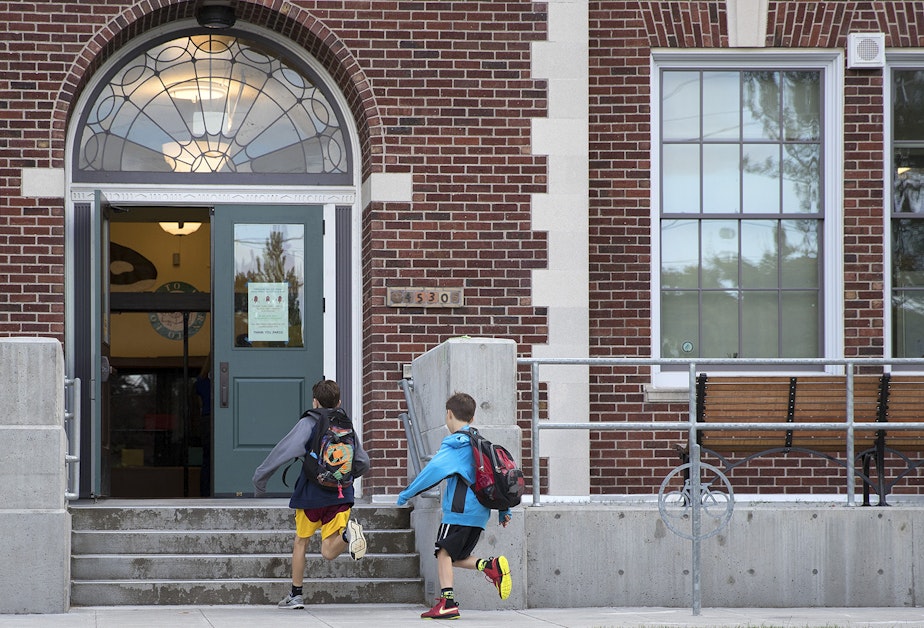Seattle teachers approve contract: 10% raise, less than nearby districts

Narrowly avoiding a strike, Seattle teachers approved their contract on Saturday, with roughly 20 percent voting no.
Under this one-year contract, teachers, librarians and nurses will get 10.5 percent raises.
As educators filed into Benaroya Hall in downtown Seattle for the general meeting where the vote took place, some said they were happy about the raise, while others said they wish they had pushed for a better deal.
Teachers in neighboring districts have secured more significant raises — Shoreline teachers are getting a 24.2 percent raise; Edmonds teachers an 18.3 percent raise; Coupeville (Whidbey Island) a 22.2 percent raise.
[What Seattle teachers earn and why other districts pay more, a story from our archives.]
These steep increases are thanks to a June court ruling that resulted in Washington school districts getting $2 billion more from the state Legislature.
Outside Benaroya was Lynne Oliphant, a nurse at Interagency Academy who was on the bargaining team for this contract.
Oliphant said she was encouraged, even though “we weren’t able to accomplish everything we wanted to accomplish.”
She said this bargaining process gave the union a snapshot of the districts interests.
She said there was a fair amount they walked away from but hopes the situation will improve in a year from now when they head back to the bargaining table.
“We live in a city that has high costs,” she said. “We need to live in the city we work.”
The salary range for Seattle teachers last year was $48,000 for a first-year teacher with a bachelor’s degree to $94,000 for a teacher with 15 years experience and a Ph.D or doctorate.
Teachers can earn even more, however, if they supervise extracurriculars or coach.
The pay bump comes as Seattle becomes one of the priciest, most congested cities in the nation.
But the increase in pay isn’t connected to the cost of living here. For years, school districts across Washington state have complained the state does not give them enough money to educate kids. The state gave districts a set dollar amount per kid – but that didn’t cover school nurses or librarians or administration. As a result, schools had to rely on property taxes. That was okay for wealthy school districts, but tougher on poorer districts that couldn’t rely on property taxes.
In June, the state Supreme Court ruled on the McCleary case, which addressed this dilemma. The high court told Washington state to fully fund public schools.
Seattle’s fight won’t end with union negotiations – the district will be pushing for legislative change.
Jerry Cornfield of Everett's Daily Herald told KUOW’s Angela King that state law now limits how much wealthy districts can raise through local levies. Those big districts and unions will be working to push through changes in the legislature in 2019.
“Seattle is one of those districts that wants to regain some of its ability to raise money from local property taxes,” he said.




